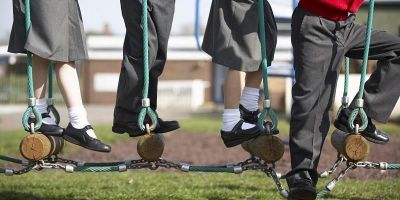The Nick Almond Prize

Nick Almond was a unique human being whose life exemplified the indomitability of the human spirit and whose personality epitomised outstanding human values.
Nick Almond was the most disabled student ever accepted for a Psychology degree at the University of Leeds (1998). He suffered from cerebral palsy following a medical accident shortly after birth and for his whole life he was unable to make any voluntary movements. He was entirely dependent on others (mainly his family) for all of his needs, on his personal assistants for his academic studies, and on his family and student friends for his quality of life.
However, Nick had perfect hearing and vision, and exceptional intellectual ability including an astonishing memory. With a great effort he was able to make vocal sounds which could be interpreted and understood by close colleagues. But he could not move. Despite his overwhelming impairments Nick was a cheerful, enthusiastic and positive student who refused to display any self-pity and denied any pity shown to him by others.
Nick was awarded a BSc hons (upper second) in 2002 and went on to complete a PhD on the ‘use it or lose it’ theory of memory. Nick dictated his thesis, an intellectual feat that would be beyond the capacity of most scholars.
Colleagues commented on Nick’s sense of humour and on his capacity to put people at ease. Nick recognised that some people would feel uncomfortable in his presence, and he used humour and questioning to break down barriers. Rather than feeling sorry for himself, Nick was positive and optimistic. These attributes showed the attitude of a truly exceptional human being. On account of these attributes, Nick had a beneficial impact on life in the department. Because of his presence there was less justification for others to behave badly – by complaining too much about trivialities, or by acting in anti-social ways. His presence inspired people to behave better and this created a more civilised social environment.
During and following his academic studies, Nick campaigned actively on behalf of people with disabilities. He frequently wrote to members of parliament demanding greater resources to provide opportunities to enable people to lead more active lives. Nick regarded this as part of his civic duty to improve society.
Nick died on June 8 2018 and his funeral was on June 19. Nick was as brave and dignified in approaching his death as he was in managing his life. Nick knew that he had incurable liver failure and that he was going to die; we remember the text message circulated, as he had requested, on 4 June:
'Hi JB I'm in hospital and not very well. I'm coming home tomorrow or Wednesday and I won't have much longer if you want to come and see me before hand. And could you let people at uni know'.
I believe this shows a further aspect of Nick’s character that can be a model for our own attitudes and behaviour. It is also characteristic of Nick that among his final words, made within hours of his death, were those to express his wish to ‘thank everyone in the department for all that they had done for him’. It is not everyone who could show such sensitivity and graciousness after all that Nick had endured in his life. Nick Almond was an honourable, courageous and a truly remarkable person. On the occasion of Nick’s funeral, the University flag was flown at half-mast as a mark of respect. Nick was a unique human being.
The Nick Almond Prize
In recognition of the remarkable qualities of Nick Almond as a student and as a human being, the School of Psychology endowed a prize to honour his memory and the example he set to all. The Prize is awarded annually to a student who displays some of those qualities that exemplified Nick’s life: academic commitment, positive human values and a contribution to a civilised society. Each recipient of the Nick Almond Prize will be able to regard the award as a particularly significant honour bestowed on a student by the School of Psychology.
The new Nick Almond award was given to Kirsty McAllister (BSc Psychology Industrial) this year.
Article produced by John Blundell.




